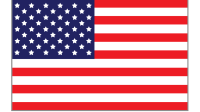
Is It Illegal to Burn the American Flag in America?
Introduction
The American flag is a potent symbol of the United States and its values. Yet, the issue of whether it is legal to burn the flag has been a contentious topic for decades. This article delves into the legal and historical aspects of flag burning in America, exploring the First Amendment, judicial rulings, and the ongoing debate surrounding this controversial act.
The First Amendment and Flag Burning
The First Amendment to the United States Constitution guarantees the freedom of speech, which includes symbolic speech. However, this right is not absolute, and the Supreme Court has held that certain forms of symbolic speech, such as hate speech or imminent threats, can be restricted.
In the landmark case of Texas v. Johnson (1989), the Supreme Court ruled that flag burning is a form of symbolic speech protected by the First Amendment. The Court reasoned that burning the flag is a political statement, and that the government cannot prohibit the expression of unpopular ideas.
Judicial Rulings
Since the Johnson decision, lower courts have generally upheld the right to burn the flag. For example, in California v. Ting (2009), the Ninth Circuit Court of Appeals ruled that a state law banning flag burning was unconstitutional. The court found that the law was not narrowly tailored to serve a compelling government interest.
Congressional Action
After the Johnson ruling, Congress attempted to pass a constitutional amendment that would have explicitly banned flag burning. However, the amendment failed to gain the necessary two-thirds support in both the House of Representatives and the Senate.
Arguments Against Flag Burning
Opponents of flag burning argue that it is disrespectful to the flag and to the ideals it represents. They contend that burning the flag is an act of disloyalty and that it undermines national unity. Additionally, some argue that flag burning promotes violence and disorder.
Arguments for Flag Burning
Proponents of flag burning argue that it is a legitimate form of protest and that the First Amendment protects the right to express unpopular views. They contend that burning the flag is a way to criticize the government and to draw attention to social injustices. Additionally, they argue that flag burning is a symbolic act that does not actually harm the flag itself.
Ongoing Debate
The debate over flag burning continues to this day. While the Supreme Court has ruled that it is a protected form of speech, there is still strong opposition to the practice. In recent years, several states have passed laws that criminalize flag burning, but these laws have been struck down by the courts.
FAQ
Q: Is flag burning legal in the United States?
A: Yes, flag burning is legal in the United States under the First Amendment.
Q: What are the arguments against flag burning?
A: Opponents of flag burning argue that it is disrespectful to the flag, undermines national unity, and promotes violence.
Q: What are the arguments in favor of flag burning?
A: Proponents of flag burning argue that it is a legitimate form of protest, protected by the First Amendment, and a way to criticize the government and draw attention to social injustices.
Q: Has there been any legislation passed to prohibit flag burning?
A: Yes, several states have passed laws that criminalize flag burning, but these laws have been struck down by the courts.
Q: What is the future of the flag burning debate?
A: The debate over flag burning is likely to continue for the foreseeable future, as there are strong opinions on both sides of the issue.
References
- Texas v. Johnson, 491 U.S. 397 (1989)
- California v. Ting, 577 F.3d 1102 (9th Cir. 2009)
- 4 U.S. Code § 8 – Respect for flag
- 18 U.S. Code § 700 – Desecration of the flag of the United States





